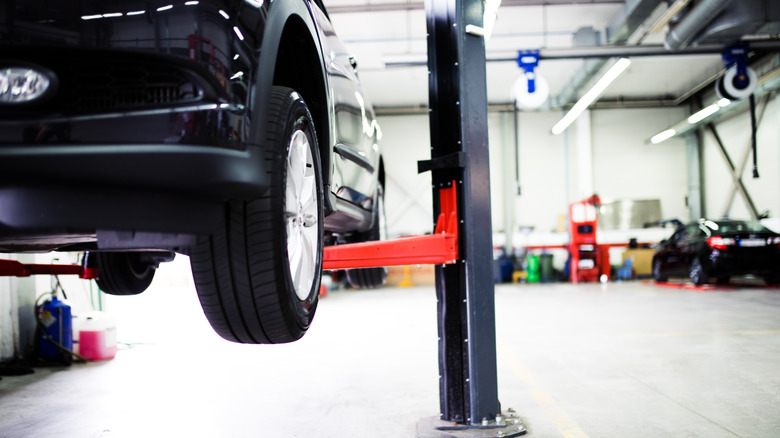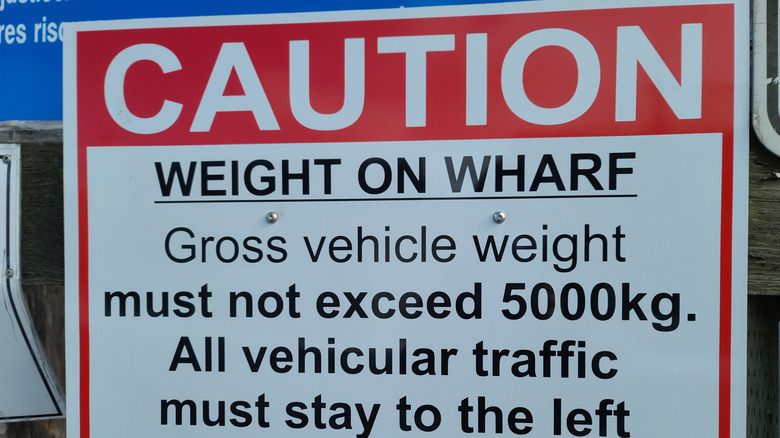What Does Curb Weight Mean? (And Is It Different From Gross Weight?)
Have you ever wondered how much your car actually weighs? We're not talking about what's listed in the owner's manual, but what it weighs when you're driving it down the road. That's where terms like curb weight and gross weight come in. While they might seem like simple measurements, knowing the difference can make all the difference in many scenarios — whether you're loading up for a road trip, towing a trailer, or just trying to maximize fuel efficiency. These terms are important for vehicle performance, safety, and legal compliance. So, confusing them could lead to unexpected handling issues, reduced fuel efficiency, or even fines for exceeding weight limits.
Put simply, curb weight is how much your vehicle weighs when it's sitting still, with its factory-installed equipment, all essential fluids (such as coolant and engine oil), and a full tank of fuel, but without passengers or cargo — when in its stock, ready-to-drive form. On the other hand, gross weight is the total weight of the car when it's loaded up with everything it's carrying, including people, luggage, and any extra gear or additional modifications. Essentially, the difference between curb weight and gross weight lies in whether the vehicle is empty or fully loaded.
Why curb weight and gross weight matter
Have you ever wondered why two cars with the same engine can have different fuel efficiency? For instance, some Honda CR-V and Honda Civic models are powered by the same L-Series 1.5-liter turbocharged 4-cylinder engine. However, the Honda CR-V gets 28 MPG in the city and 34 MPG on the highway, while the mid-range Civic EX gets 33 MPG in the city and 42 MPG on the highway. While many factors come into play, like aerodynamics, driving style, vehicle type, and tires, one of the reasons a car's fuel efficiency drops is the weight. A lighter car requires less energy to move, which improves its overall MPG. Every extra 100 pounds of weight can reduce fuel efficiency by 2%, according to the Department of Energy. That's why manufacturers work to balance performance and weight.
A car's gross weight is important for handling and braking. A heavier vehicle takes longer to stop. Unlike a lighter vehicle, it has more momentum, meaning it requires a greater force to decelerate and come to a complete halt. Excessing weight limits can strain the suspension, brakes, and tires, accelerating wear and increasing maintenance costs.
Then there's the legal side of things. Overloading a vehicle beyond its Gross Vehicle Weight Rating (GVWR) is a risk and also illegal. In the U.S., commercial trucks often have to stop at weigh stations, and they can face fines if they exceed weight limits. In such cases, the penalties can reach thousands of dollars per violation. Aside from weigh stations, authorities even implement weight limits on particular roads. Even for everyday drivers, an overloaded vehicle can lead to safety violations or insurance issues, particularly in the case of an accident. So, knowing your car's weight ratings helps you stay compliant with the weight limits.
How are these weights measured?
If you want to know what your car weighs, don't just guess — measure it. Curb weight is easy to find in the owner's manual or on the VIN sticker. However, gross weight is a different story since it includes passengers, cargo, and even fuel, and the weight varies. The only way to get an accurate number is by driving onto a certified vehicle scale. These scales, often found at truck stops or weigh stations, provide a precise measurement. It's a good way to make sure you're not unknowingly exceeding your vehicle's limits.
But you're not going to drive over to a weigh station all the time. To estimate gross weight at home, you can use a simple equation: curb weight + the weight of everything you load into the car. So, if your SUV has a curb weight of 4,500 pounds and you add 800 pounds of passengers and cargo, your vehicle now weighs 5,300 pounds. However, this still doesn't account for factors like towing or tongue weight— the downward force exerted on the car's hitch when a trailer is attached for towing. These weights can add extra strain on the vehicle's suspension system and can affect handling, especially in rough terrain or bad weather.


